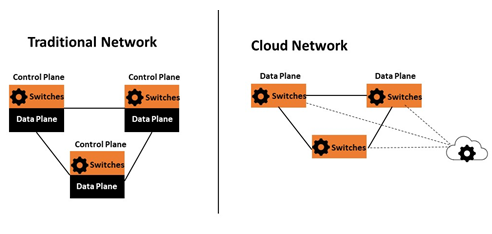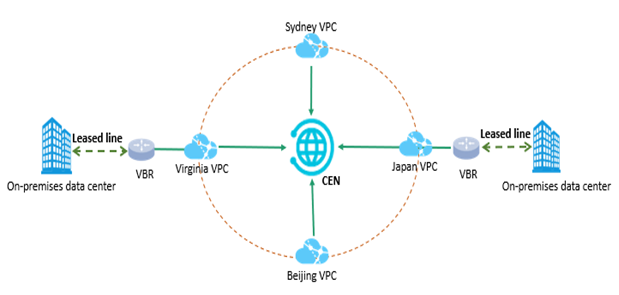By Prashant Mishra, Alibaba Cloud MVP and CEO, Founder Click2Cloud Inc.
Traditional networking controller system is very tedious to manage which is based on old, rigid commands and consoles. Thus, to overcome the issues of speed and automation, the cloud networking comes into picture.
A Cloud Networking technology is an approach for network management which enables the speed and automation in order to improve the network performance, simple & flexible with less administrative work. CEN helps to make the system easier and less tedious to perform the tasks.
Cloud Networking is an open technology and more programmatically efficient comparing to old networking systems. CEN is a flourishing architecture that is transforming industries with its approach to Alibaba cloud computing and multitenant network management. Alibaba networking accelerate internet applications globally to improve user experience.
The major difference between traditional and Cloud Networking is its software-based network. Where traditional networks rely on switches and routers whereas, the cloud network is based on virtual level through control plane.

Fig: Traditional network and Cloud Network
Basically, traditional networks unable to meet the networking requirements like dynamic scalability, handling of network traffic, server virtualization traffic, central control and management in data centers.
To overcome such issues, Alibaba network service define the networking approach like VPN Gateway, Server Load Balancer, Elastic IP, and Cloud Enterprise Network. As the name suggested, CEN is implemented through cloud where networks are controlled by cloud application and CEN controller.
CEN is a cloud network layer thus it provides reduced manual efforts, dynamic scalability, and central management of network devices.
Alibaba Cloud Enterprise Network is a highly defined network built on high-performance and low-latency global private network.

Fig: Architecture diagram of CEN
CEN architecture consists of following components:
CEN instances: The CEN networks are basically created by users which are network resources.
Networks: The CEN networks are interconnected with each other. They support VPC, CCN (cloud connect network), and VBR (virtual border router).
Bandwidth Packages: There is always a source of medium for communication. Bandwidth package is one such medium which is required for a communication to take place.
Cloud networking architecture is a gem, which not only benefits the large and small organizations with its network's requirements but also provides the better visibility of issues. Security, higher efficiency, better performance, data storage & time management reduces the administrative loads & provides speed and automation. Alibaba cloud enterprise network provides a hybrid and distributed global network.
Solving Server Reliability Problems with Server Load Balancer

82 posts | 2 followers
FollowRupal_Click2Cloud - November 23, 2021
Alibaba Clouder - June 18, 2020
Alibaba Cloud_Academy - June 29, 2020
Alibaba Clouder - March 9, 2021
Sabith - October 25, 2018
blog.acpn - November 17, 2023

82 posts | 2 followers
Follow Networking Overview
Networking Overview
Connect your business globally with our stable network anytime anywhere.
Learn More CEN
CEN
A global network for rapidly building a distributed business system and hybrid cloud to help users create a network with enterprise level-scalability and the communication capabilities of a cloud network
Learn More Edge Network Acceleration
Edge Network Acceleration
Establish high-speed dedicated networks for enterprises quickly
Learn More Accelerated Global Networking Solution for Distance Learning
Accelerated Global Networking Solution for Distance Learning
Alibaba Cloud offers an accelerated global networking solution that makes distance learning just the same as in-class teaching.
Learn MoreMore Posts by PM - C2C_Yuan